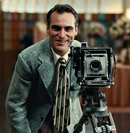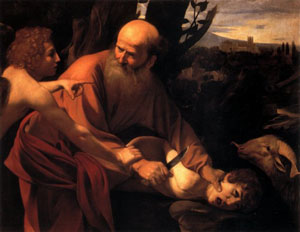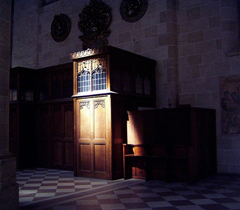Imagine Jack Dawson and Rose Dewitt Bukater working for a living in New York's slums. Or Romeo and Juliet going it alone, deprived of their family fortunes. Similarly, had Jay Gatsby married Daisy Buchanan, we would have lost them. And they would likely lose each other.

But unlike the doomed pairs from the film
Titanic and Shakespeare's tragedy, Gatsby was willing to volunteer for his fate. The sacrifice he was to make for Daisy is not unlike the one Abraham was to make for God: Both men stood ready to answer the call of a higher duty--a duty only answerable by renouncing all others. Abraham's duty was to God; Gatsby's to an ideal, the past, the promise.
As I went over to say goodbye I saw that the expression of bewilderment had come back into Gatsby's face, as though a faint doubt had occurred to him as to the quality of his present happiness. Almost five years! There must have moments even that afternoon when Daisy tumbled short of his dreams--not through her own fault but because of the colossal vitality if his illusion. It had gone beyond her, beyond everything. He had thrown himself into it with a creative passion, adding to it all the time, decking it out with every bright feather that drifted his way. No amount of fire or freshness can challenge what a man will store up in his ghostly heart.
For years Gatsby believed he could resurrect the past, a few moments of youth preserved under the glass of his memory, observable, close, but too fragile to touch.
"Can't repeat the past?" he cried incredulously. "Why of course you can!"
He looked around him wildly, as if the past were lurking here in the shadow of his house, just out of reach of his hand.
"I'm going to fix everything just the way it was before," he said, nodding determinedly. "She'll see."
He talked a lot about the past and I gathered that he wanted to recover something, some idea of himself perhaps, that had gone into loving Daisy. His life had been confused and disordered since then, but if he could once return to a certain starting place and go over it all slowly, he could find out what that thing was ...
Gatsby, in his suspension, his nonexistence, is replaced in the public mind with a collection of myths borne from the incurious imaginations of passersby. In Fitzgerald's story, these are all people living a life other than their own: Tom Buchanan has his wife, Daisy, but his attentions lie with his lover in the city; Daisy pretends they don't; Gatsby suspends himself in service of his dream for Daisy; and Gatsby's guests obliterate the night with drink and forgetting, believing themselves to be in the company of a man who isn't, who isn't and who isn't.






